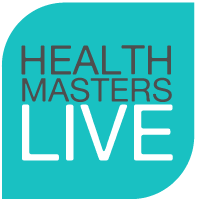Dr Peter Bongiorno graduated from Bastyr University. He completed five years of training in naturopathic medicine and acupuncture and was honoured to be his class speaker. Before medical school, he researched as a pre-doctoral fellow at the National Institutes of Health in Bethesda, Maryland and at Yale University in New Haven Connecticut, and co-authored numerous medical journal articles in the field of neuroendocrinology. He completed his premedical studies and received a Bachelors degree in Biology and English Literature from Fairfield University.
Dr Bongiorno authored Healing Depression: Integrated Naturopathic and Conventional Treatments (CCNM Press, 2010), the first comprehensive textbook designed to teach physicians how to use the science and art of natural medicine to heal depression. His latest book for the public, How Come They’re Happy and I’m Not was released in November of 2012. He regularly writes articles for the Dr Oz and Sharecare websites and is an invited expert blogger at Psychology Today. Dr Bongiorno is also a major contributor to the 3rd and 4th editions of the Textbook of Natural Medicine.
Dr Bongiorno is Vice-President of the New York Association of Naturopathic Physicians and is active in gaining legislation to license naturopathic doctors in New York State. He is a member of the American Association of Naturopathic Physicians, Physicians for Social Responsibility and is a Diplomat in Acupuncture. Dr Bongiorno is licensed as an acupuncturist in the State of New York and is considered a naturopathic doctor in the State of Washington, where naturopathic doctors are licensed to practice medicine.
Dr Bongiorno helped create the first elective natural and integrative medicine class at the Mt. Sinai School of Medicine, and he regularly guest lectures to medical students about natural medicine and acupuncture. Dr Bongiorno is an adjunct faculty member at New York University and at the Natural Gourmet Institute for Food and Health. He has lectured at the American Association of Naturopathic Physicians conference, CAM Expo in New York City, and numerous other conferences to both physician and public audiences.
Dr Bongiorno has been regularly interviewed on national television as a natural medicine expert and local television, radio, and writes for national media (Psychology Today, MSN.com, Energy Times).
